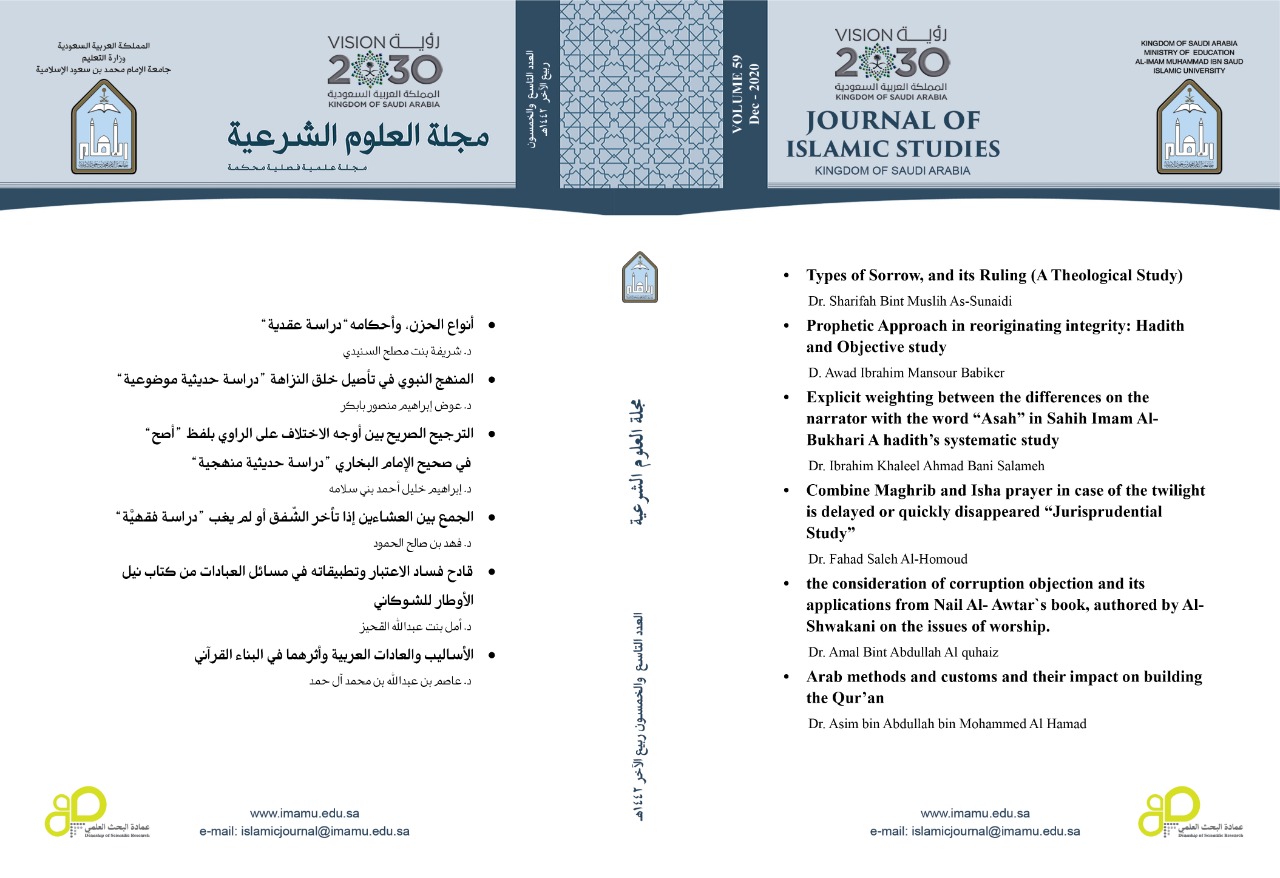Types of Sorrow, and its Ruling (A Theological Study)
Keywords:
Sorrow – worship thro ugh sorrow – crying – sorrow of this lifeAbstract
‘Sorrow’ linguistically includes difficulty, because of the pain; it causes within the self over a past or future unachievable matter. There are similar words to the term ‘sorrow’ such as grief and regret, but they mean more than just ‘sorrow’.
Worshipping Allah through long continuous sorrow is an innovation, and so is seeking sorrow in study circles, all of this is against the Sunnah. Other practices considered religious innovations include specifying certain times to be sad like the Shia on Aashuraa, and also replacing happiness on the day of Eid with sadness.
Sorrow can be divided into two: one relates to worldly matters like sadness over the death of a beloved or a missed chance, and the other concerns matters of the Hereafter, like sadness over sins or falling short in good deeds.
Through reading the Islamic texts, we find that both ‘sorrows’ are unpraiseworthy. Sadness over sin or less good deeds is, however, praiseworthy as it indicates the heart’s belief.
The Prophet – peace be upon him- treated sadness through duaa, remembering Allah, and increasing worship. He also allows the natural disposition to express sorrow, like crying without wailing, and eating certain foods like talbeenah that lessens sorrow.




